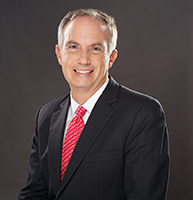Walk This Way – Bret I. Parker

Fall 2017
As a native New Yorker, I am constantly frustrated to see people walking near the New York City Bar Association’s landmark building in midtown Manhattan who don’t demonstrate common courtesy, or common sense, by following simple best pedestrian practices. Walking in New York should be handled much like driving a car on a busy highway: look before you change lanes, stay to the right if you’re slow, don’t make sudden stops, and keep your eyes on the road. People meandering randomly while their eyes are glued to their phones are ignoring the essential reality that they are sharing the sidewalk with others.
What does this possibly have to do with the legal profession? As City Bar President John Kiernan has said, lawyers share a bond in that many of us went to law school because we were drawn, in one form or another, to the “organizing of human conduct.” Implicit in this perspective is that we are not alone, that we live in a world where we interact with others, so we always need to consider that when we act. Lawyers are particularly well equipped to keep that in mind and to govern themselves accordingly. Whether in the context of civil litigation, corporate law, criminal defense, civil legal services, or government administration, lawyers are indispensable in organizing a world in which people are governed not merely by their own desires and self-interests but by the rule of law and the norms that establish the rights and responsibilities of all of us.
Providing our members an abundance of ways to participate in ensuring we all understand, help shape, and follow these rules of the road is a big part of what the City Bar does. One way we do this is though our Professional Ethics Committee (Bruce A. Green, Chair), which issues formal and informal advisory opinions. The Committee also runs our longstanding Ethics Hotline (reachable through our Customer Service center at 212.382.6663), which fields questions for lawyers admitted in New York about their own prospective conduct under the New York Rules of Professional Conduct.
Viewed through the lens of organizing human conduct, you can see the common thread that runs through the work of our approximately 160 committees. We organize our committee reports under the banner of “Issues & Policy” because much of the legal analysis we do is about proposing and clarifying rules of the road in the public interest. Our CLE and career development programs train lawyers to participate in this process, and our public programs, like, for example, the recent one on the First Amendment, invite the public to engage with us in it.
It’s perhaps in pro bono work that consideration for others reaches its apotheosis in the legal world. The City Bar Justice Center and the Cyrus R. Vance Center for International Justice provide our members the opportunity to give back to the community and to ensure that our justice system provides equal access to all.
We know that for many years in the legal profession, as in many other professions, some of the rules of the road, both intentionally and through unintended effect, have disparately favored certain groups of people on their professional journeys. This is the focus of our Office for Diversity & Inclusion. And you could say that our Lawyer Assistance Program is about helping lawyers get back on the road to being their best possible selves.
Being a member of the City Bar is like being a pedestrian on the streets of New York in that we’re a part of something much larger than ourselves and we must continue to look ahead. And the place where it all comes together is our House of the Association. We look forward to seeing you here. Just please, please be mindful when walking down 44th Street toward the building. A better world begins with each of us. A world in which pedestrians don’t pinball off one another, and where all share the sidewalk in a graceful ballet of spatial awareness. You may call me a dreamer….
Bret I. Parker is Executive Director of the New York City Bar Association.

